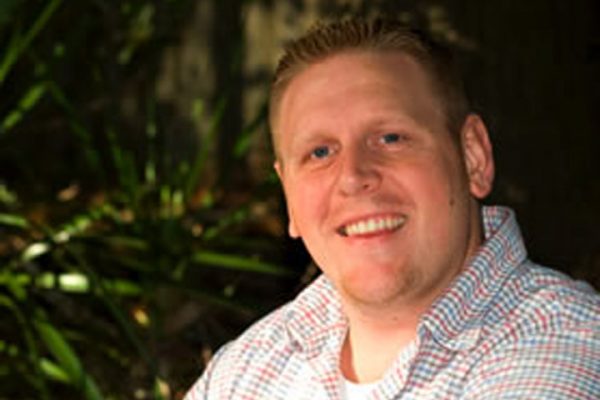
“I am interested in learning more about how, and through what means, fathers form an identity [and] how fathers seek to improve the quality of their interactions with their children.”
As an undergraduate at Brigham Young, Spencer Olmstead became intrigued with the ways family members interact. Since Marriage and Family Therapy was the only clinical treatment that focused primarily on family systems, Spencer obtained his master’s degree in the field at the University of Oregon. But he felt he needed to learn more about conducting research to help close the “research-practice gap.” This led him to Florida State.
“FSU has one of the oldest accredited Marriage and Family Therapy programs in the country,” he says, “and the quality of the faculty and research projects is impressive.” Upon completion of his doctorate, Spencer plans to teach at the college level while continuing to develop research that will improve father-child interaction. “I am interested in learning more about how, and through what means, fathers form an identity; how fathers seek to improve the quality of their interactions with their children; how therapists can draw fathers into therapy; and how the father’s involvement influences the quality of family therapy.” For the journal Fathering, he and Dr. Kay Pasley, chair of the Department of Family and Child Sciences, have co-authored a review of the book, Why Fathers Count, and are currently working on other research related to fathering.
Spencer is also involved in a major research project headed by Drs. Frank Fincham and Kay Pasley. “Project Relate,” he says, “aims to increase college students’ awareness of the important components of successful relationships. It is an honor to be involved in a project that has the potential to influence the dissemination of knowledge about marital, couple, and family relationships across the country. As part of the FAD 2230 course, I teach undergraduates about relationship safety, communication, and the self through insight on one’s gender, family of origin, and personality.” His first co-authored paper, on the topic of stress in student relationships, appeared in the peer-reviewed journal, Stress and Health.
He says, “I am thrilled to contribute to the field of Family Sciences through research, writing and practice, and to see my name on a journal article beside the names of people whom I admire and respect.” He and his “excellent mentor,” Dr. Pasley, are now working on a chapter entitled “Changing Landscape of American Family Life” for the edited book, Handbook of Family Psychology.
Spencer is also interested in increasing the effective treatment of infertility and infidelity, and the use of forgiveness in therapy. For the American Association for Marriage and Family Therapy’s national conference, he and peer Paul Stanford presented a workshop on “how to incorporate forgiveness when treating couples presenting with infidelity.” And he and peers Ryan Blick and Lilbourne Mills co-presented a poster on the common components of forgiveness.
For the National Council on Family Relations’ conference, he co-presented a paper with Dr. Carol Darling on the life satisfaction of persons with AIDS. In addition, he and peer Andrea Meyer presented a conceptual poster on the treatment-seeking patterns of couples experiencing infertility, “an important topic because of its direct link to fathering or the inability to become a father.”
Spencer says, “As a therapist I have come to learn that all individuals, couples, and families have strengths and resources that can help them address their problems. I have a valuable opportunity to help them overcome these problems and to increase their happiness.”




